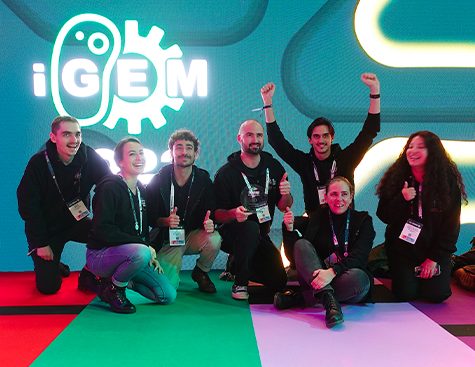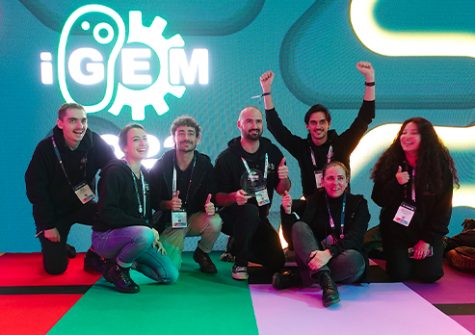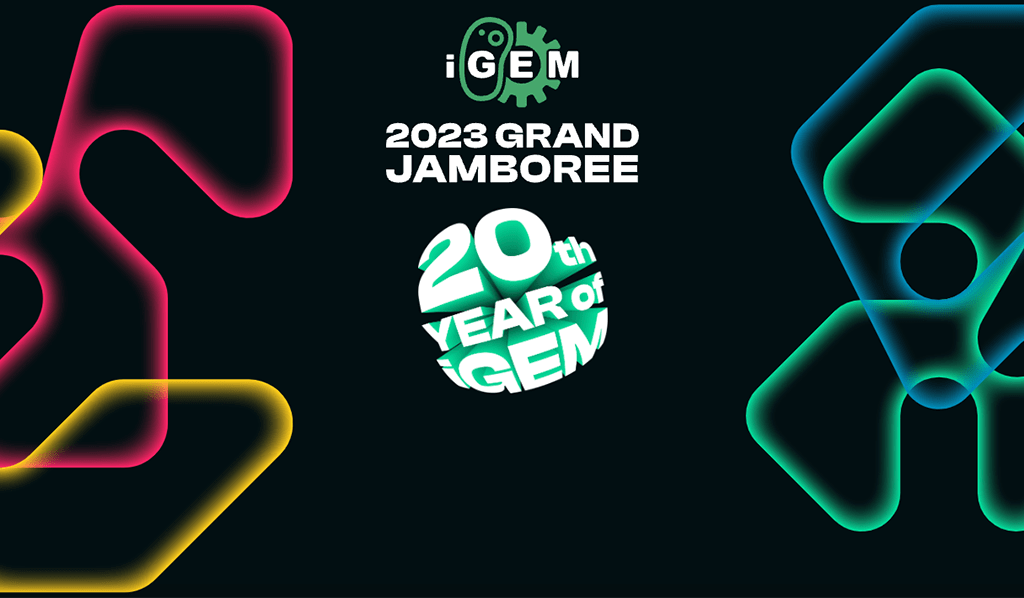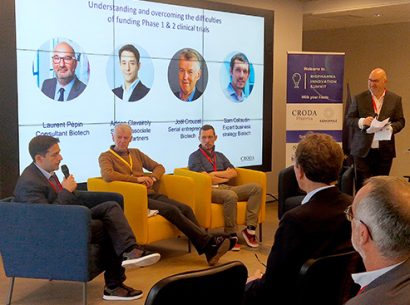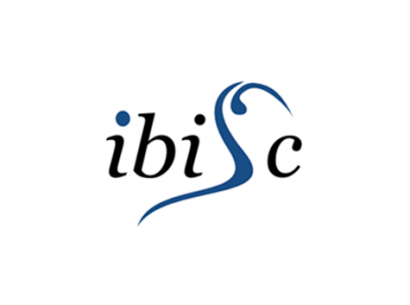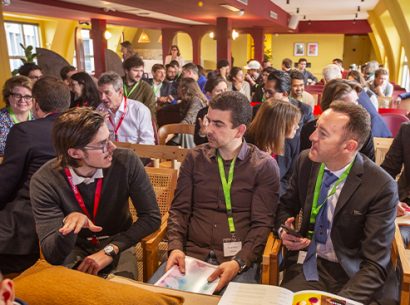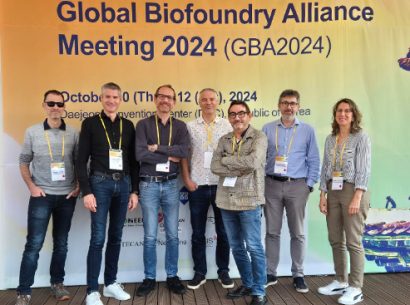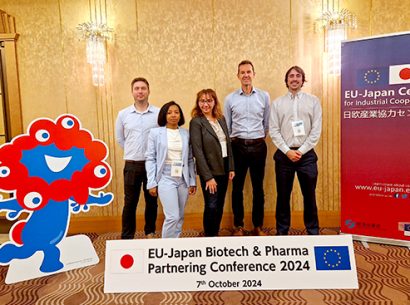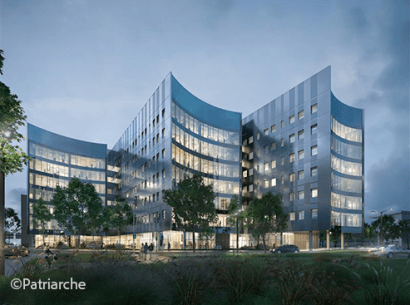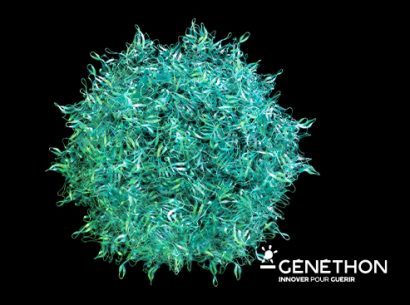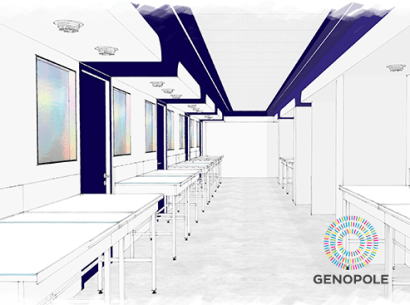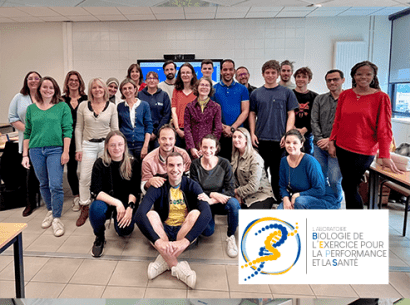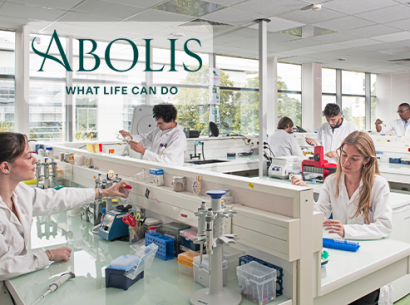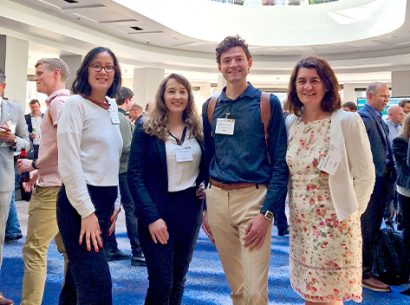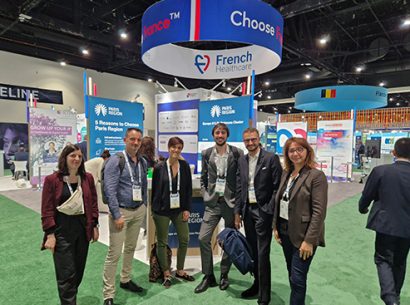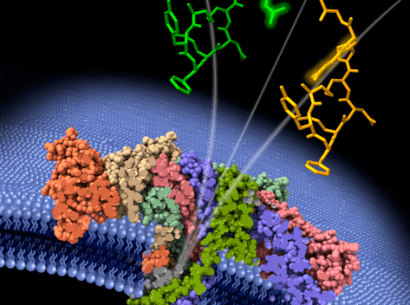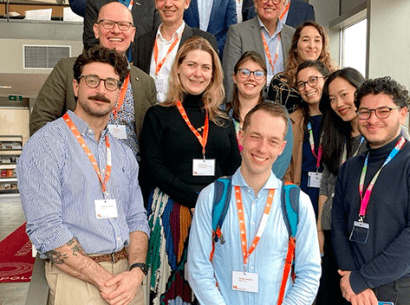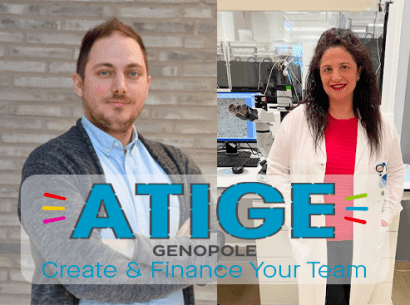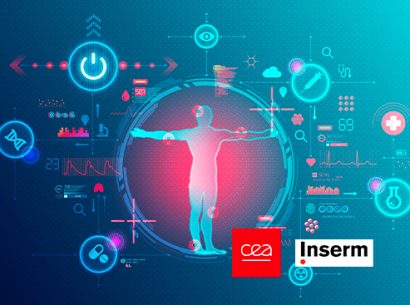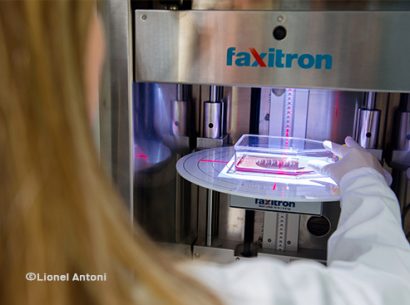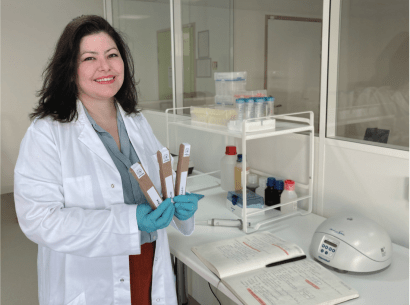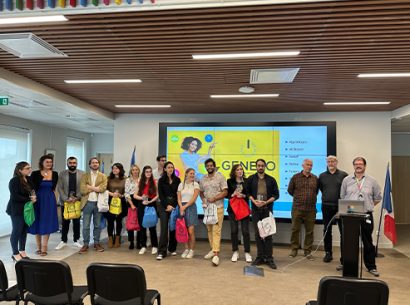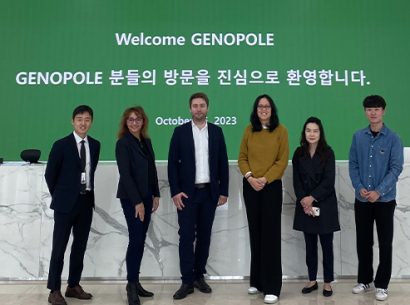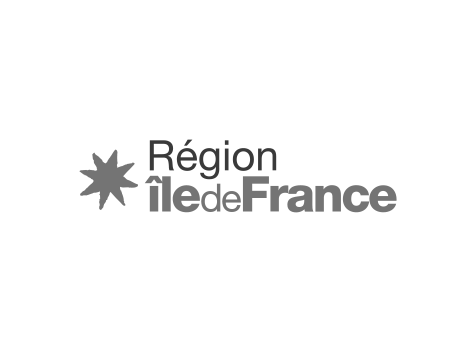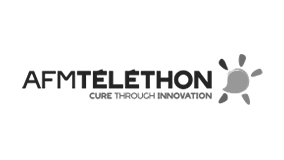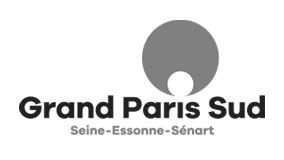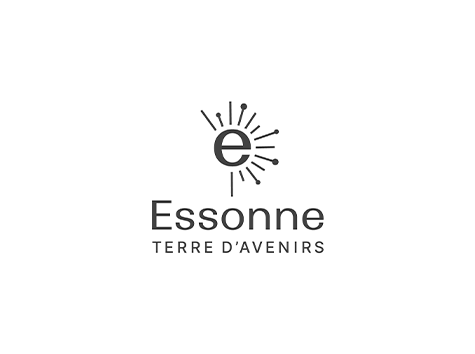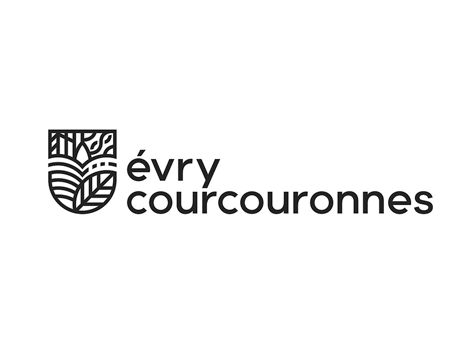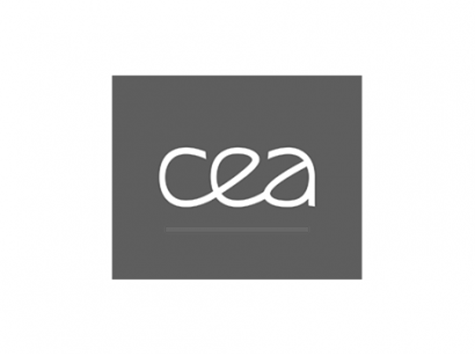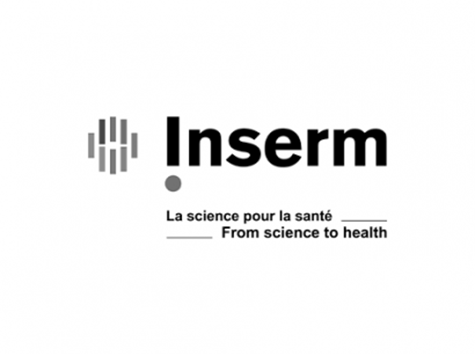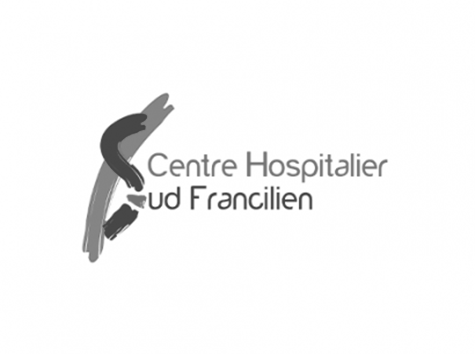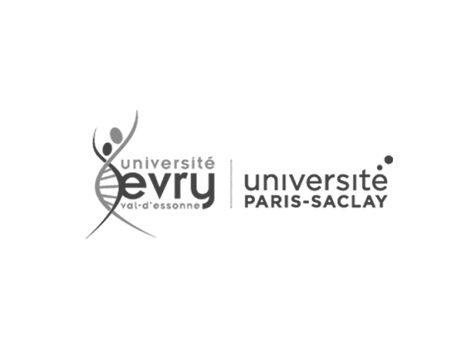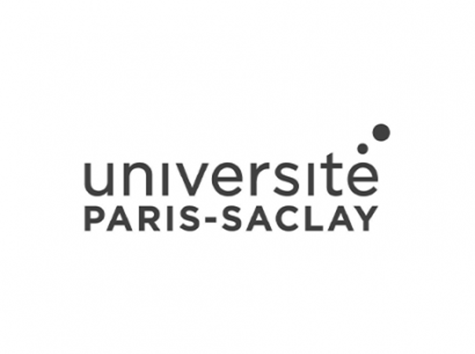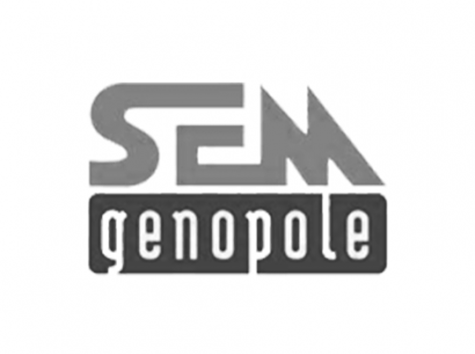From across the globe, the event drew more than 7,000 students in 400 teams from 66 countries. Genopole was there, among other actors in synthetic biology, to present the biocluster’s advantages at its stand, and support the 17 students of the Évry Paris-Saclay team and their outstanding project, OptoGenEYEsis.
Indeed, the Évry team was a gold medalist for having met all of the competition’s scientific and technical criteria, among the four nominees for the Best Software Tool Prize, and especially, for the first time in its history, the winner of the Best Hardware Prize, recognizing the development of an innovative, miniaturized, multifunction, automated laboratory system piloted by artificial intelligence.
Here, Genopole discusses the event with Teaching Researcher Ioana Popescu, who has led the Évry team for seven years, and Georges Sainte-Rose, a student who has been actively involved in the team for three years and furthermore was a laureate of Genopole’s 2022 Shaker program.
 Ioana Popescu, teaching researcher in synthetic biology and metabolic engineering (UMR 8030 Genomics Metabolics CEA-CNRS-UEVE, Genoscope), iGEM team leader since 2017:
Ioana Popescu, teaching researcher in synthetic biology and metabolic engineering (UMR 8030 Genomics Metabolics CEA-CNRS-UEVE, Genoscope), iGEM team leader since 2017:
What motivates you to continue guiding the yearly Évry iGEM team?
Ioana : “Every year, with iGEM, I get to discover new research subjects and topics, and read scientific articles that I surely wouldn’t have found the time for otherwise, and much more. It’s all very interesting and I never get bored of it! And of course, what motivates me also is the chance to help the students transform their dreams into attainable realities. I always bring them back to reality: what is possible and what is not. I make sure that their experiments are done rigorously, with all the controls necessary to ensure that conclusions are based on pertinent data. Some students are impassioned, hard-working and persevering even after having discovered the amount of work involved, while others find the work wearying because they can’t work fast enough.”
What makes the iGEM competition difficult?
Ioana : “The stress, because there is not an hour—not a minute—to spare with the enormous quantity of work to be done. It’s stressful also because the students think they have more time than they really do. There are constraints due to biology itself, which leaves no room for error.”
As head of the team for years now and head of the Master program, what do you think the future of synthetic biology will look like?
Ioana : “I see another way of conceptualizing biology as a science. The synthetic chemistry revolution enabled longer and healthier lives for us all. I think this will be true for biology as well. And it’s just getting underway. Synthetic biology can truly change our lives and bring solutions not only to health but also the environment, not only the discovery and development of new medicines but also new ways to recycle waste.”
What does iGEM represent? What attracts you to synthetic biology particularly?
Ioana : “Participating in iGEM and particularly in the Jamboree gives hope for the future. Seeing all those young people, truly impassioned by what they do, proud of their projects, the solutions they’ve found to save the world; all of it is very inspiring.
At the Grand Jamboree, the students discover the scope of what is possible, beyond what they’ve done in their particular laboratories with their particular projects. Synthetic biology is not a method, it’s an approach. The students will go on to join laboratories across the globe, public or private, bringing with them this approach to taking on challenges in biology. I think it’s much more a way of thinking about biology.
”
 Georges Sainte-Rose, student in Master 2 Systems and Synthetic Biology (mSSB) and member of the Évry Paris-Saclay team over the past three years, laureate of the 2022 edition of the Shaker (Genopole’s innovative start-up incubation program) :
Georges Sainte-Rose, student in Master 2 Systems and Synthetic Biology (mSSB) and member of the Évry Paris-Saclay team over the past three years, laureate of the 2022 edition of the Shaker (Genopole’s innovative start-up incubation program) :
What motivates you to participate in iGEM?
Georges : “Innovation and science! As a student, it’s such an incredible opportunity to take on world-reaching projects, work with consequent grants that enable months-long work and have access to laboratories; in sum, it’s a dream for any impassioned science student. It’s a fantastic adventure that allows us to build experience and develop interesting technologies, both able to contribute to future PhD projects and beyond!”
And what does the competition bring to you?
Georges : “Everything! For example, I discovered digital microfluidics during my research for the iGEM 2021 project. That technology has opened doors to numerous academic and professional opportunities for me. And it’s only up from there. I’ve gained experience, I’ve started prototyping, and I was selected for Genopole’s prestigious incubator program, the Shaker. I continue participating in iGEM not only to further increase my competencies in this domain but also to make the technology known throughout the world, as iGEM offers international reach with over 60 countries represented and phenomenal opportunities for meeting others, promoting our work and building networks. We speak to teams from across the globe and raise awareness of digital microfluidics to all who pass by our stand. It is truly an extremely interesting opportunity to promote the subject.”
Why does synthetic biology in particular interest you?
Georges : “It’s the future! We can, for example, imagine the biomanufacturing of nearly any organic, high-added-value compounds in microalgae-type chassis, which need only salt water, sun and minor additions of minerals, possibly derived from water treatment. My passion is the creation of innovative tools that bring solutions to real-world problems. With artificial intelligence, quantum sciences and semiconductors, synthetic biology is on the European Union’s 2023 list of critical technologies. The EU sees these sectors as essential, both in terms of economic and geopolitical security, and for addressing current and future challenges, be they industrial or ecological. Synthetic biology is the future! However, it hasn’t yet fulfilled the economic promises imagined for it over the past 20 years, mainly because numerous tools have yet to be created, such as high-throughput AI and automation technologies. Today, all of that is changing as these AI tools and automation platforms see the day and enable the very high speed examination of thousands of possible genetic constructions to identify the best of them. In my opinion, affordable, intelligent, high-performance automated solutions are truly the key elements needed to overcome the obstacles and enter into the golden age of synthetic biology and biotechnologies in general. The tiresome, slow, pipette-in-hand research will surely be a thing of the past in ten or twenty years.”
 Ioana and her team on winning the Best Hardware Prize:
Ioana and her team on winning the Best Hardware Prize:
“ It’s been ten years since we last had a prize, so we are all very happy. The prize is recognition for the work of the entire team and especially that of Georges. It represents an incredible opportunity to continue developing the technology.”
An enthusiastic multidisciplinary team
Showing its ties with the Paris-Saclay territory, the Évry Paris-Saclay iGEM team comprised six alumni or current mSSB master students from the University of Évry-Val-d’Essonne, one student from the National Museum of Natural History starting her thesis at Genoscope, and five engineering students from CentraleSupelec & one from École Polytechnique.

The OptoGenEYEsis project: improving treatments for eye diseases
 Presented at the iGEM 2023 Grand Jamboree, the Évry Paris-Saclay team’s “OptoGenEYEsis” project
Presented at the iGEM 2023 Grand Jamboree, the Évry Paris-Saclay team’s “OptoGenEYEsis” project
Le projet de l’équipe iGEM Evry Paris-Saclay “OptoGenEYEsis” présenté à la Grand Jamboree iGEM 2023 aims to use the potential of synthetic biology and directed evolution to improve the currently insufficient efficacy of gene therapies for eye diseases. The final objective is to turn surviving but light-insensitive retinal cells into photoreceptive cells via gene therapy and the development of better-performing, light-sensitive microbial opsins. The team aims to return better light-sensitivity—and thus vision—to the eye, as compared to current opsin therapies. The approach, called “optogenetics,” combines biophotonic principles (the use of light to study living tissues) and genetic engineering, explaining the name of the project presented by the team at the Grand Jamboree.
Opsins are naturally present in photoreceptor cells, where they transform photons into electric signals interpretable by the brain as an image. In such diseases as age-related macular degeneration (AMD) or retinitis pigmentosa, the photoreceptors progressively degrade, taking the opsins they carry with them. This results in increasing vision loss and ultimately blindness.
Gene therapy in this setting involves making remaining nerve cells produce opsins, something they normally do not do. Animal opsins are too complex to be used in this approach but microbial opsins are not. Indeed these latter are functionally & genetically simpler and deliverable with gene therapy vectors. However, the microbial opsins currently being tested in clinical trials provide only narrow absorption spectra, suboptimal sensitivity, and limited efficiency in converting light into nerve electrical signals.
How can microbial opsins be optimized?
That is the question the Évry Paris-Saclay iGEM team sought to answer with its OptoGenEYEsis project, which comprised several aspects:
- First was the search for more efficacious opsins in nature by looking at DNA sequencing data from marine microorganisms (as suggested by Genoscope researchers who had participated in the Tara Oceans project), some of which live in the low-light depths of the seas;
- Also, the team sought to identify an opsin screening method and develop associated technological tools;
- Moreover, they aimed to improve opsins via directed evolution, using the Evolution.T7 system developed by the Évry Paris-Saclay 2021 iGEM team (https://www.genopole.com/highlights/media-center/press-releases/igem-2021-gold-medal-evry/);
- And finally, to improve the identification of better-performing opsins, the team developed an automated, digital microfluidics screening device. Digital microfluidics is an emerging and extremely promising technology. With it, the team’s device was able to automate not only high throughput opsin efficacy testing but also the near totality of the laboratory protocols deployed over the life of the project. In other words, the team created a veritable, multifunction micro-biofoundry piloted by artificial intelligence.
It was this last aspect that earned the team the prestigious Best Hardware Prize and to be named as a finalist for the Best Software Tool Prize. The Évry team thus finds itself on top of the 400 participating teams, some representing internationally renowned institutions (MIT, Harvard, Stanford, etc.), with its Best Hardware Prize, and among the four best with its nomination for the Best Software Tool Prize. The last prize won by an Évry Paris-Saclay team was the Best Human Practices Prize in 2013.

